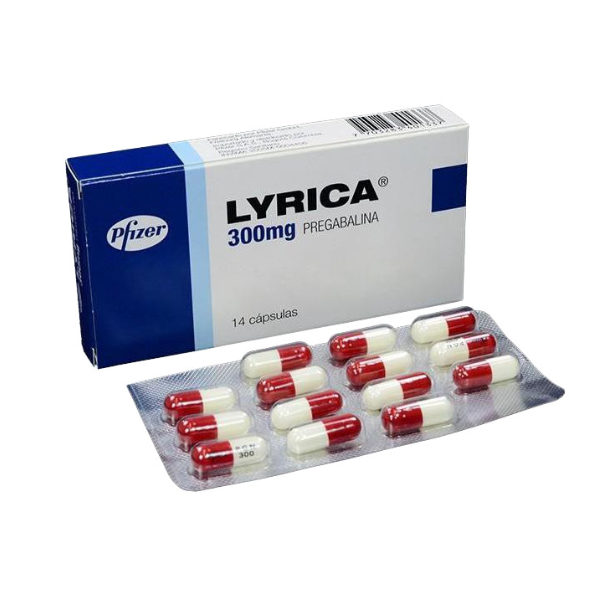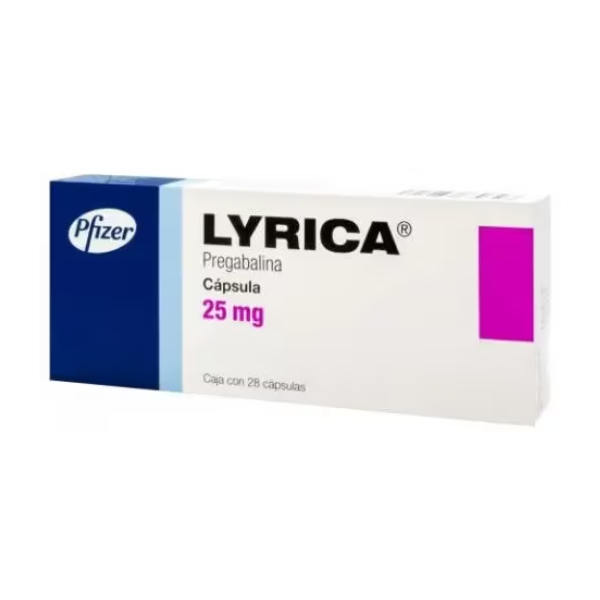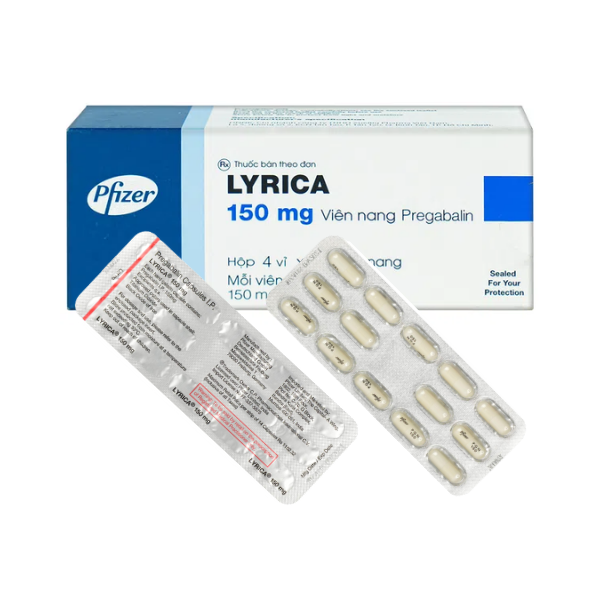Description
Lyrica 300 mg is a prescription medication used primarily to treat nerve pain, fibromyalgia, and anxiety disorders. It contains the active ingredient Pregabalin, a type of anticonvulsant drug that stabilises the electrical activity in the brain and nervous system. Healthcare providers prescribe Lyrica 300 mg to help alleviate pain caused by conditions like diabetic neuropathy, post-herpetic neuralgia, and certain types of seizures.
What Is Lyrica 300 mg?
Lyrica 300 mg is a higher dose of the medication Pregabalin, which is used to treat a variety of medical conditions related to the nervous system. Pregabalin, the active ingredient in Lyrica, works by binding to calcium channels in the brain and nerves, decreasing the release of certain neurotransmitters that send pain signals to the brain. This anticonvulsant medicine helps relieve the discomfort associated with various conditions, like nerve pain and anxiety disorders.
Common Uses of Lyrica
Lyrica 300 mg is prescribed for the treatment of several conditions. Below are some of the most common uses:
Neuropathic Pain
Lyrica 300 mg is commonly prescribed for patients suffering from neuropathic pain, which can occur due to nerve damage caused by diabetes, shingles, or other conditions. The medication helps reduce the pain signals sent to the brain, relieving people who experience chronic nerve pain.
Fibromyalgia
Fibromyalgia is a condition that causes widespread muscle pain, tenderness, and fatigue. Lyrica 300 mg can treat this condition by affecting how the brain processes pain signals. It can help patients experience relief from the constant discomfort and improve overall quality of life.
Seizure Disorders
Lyrica 300 mg is also used as an adjunctive therapy for individuals with partial seizures, a type of epilepsy. It works by calming overactive nerve activity in the brain, preventing seizures and reducing their frequency.
Generalized Anxiety Disorder (GAD)
Although not the first-line treatment, Lyrica 300 mg can be used to manage generalized anxiety disorder (GAD). It can help patients manage excessive worry, restlessness, and physical tension by acting on the central nervous system.
Post-Herpetic Neuralgia
This nerve pain occurs after an individual has shingles (herpes zoster). Lyrica 300 mg can alleviate the pain even after the rash has healed. It helps reduce the intensity of the pain signals sent from the affected nerves.
Benefits
The primary benefit of Lyrica 300 mg is its ability to alleviate chronic pain and improve the quality of life for those with neurological conditions. Here are some of the key benefits:
- Effective Pain Relief: Lyrica 300 dosage can provide significant relief from conditions like neuropathic pain and fibromyalgia, allowing patients to return to normal daily activities.
- Improved Sleep Quality: Pain relief and reduced anxiety often lead to better sleep, essential for overall health.
- Seizure Control: For individuals with epilepsy, Lyrica 300 mg can reduce the frequency and severity of seizures.
- Enhanced Mood: For those with anxiety disorders, 300 mg of Lyrica can reduce symptoms like restlessness and constant worry, leading to improved mood and emotional stability.
How Does Lyrica 300 mg Work
Lyrica 300 mg tablets works by affecting the way the brain and nerves communicate. Pregabalin, the active ingredient, binds to calcium channels in the brain and spinal cord. Doing so inhibits the release of certain neurotransmitters, such as glutamate, norepinephrine, and substance P, which are involved in pain signalling. This reduces the transmission of pain signals to the brain, helping to alleviate discomfort and improve overall well-being.
In addition, Pregabalin helps reduce the abnormal electrical activity in the brain, which can be beneficial for people with seizure disorders. By stabilizing nerve signals, Lyrica 300 mg helps restore balance in the nervous system.
Lyrica 300 mg Dosage
The dosage of Lyrica 300mg will depend on the condition being treated, the severity of the symptoms, and the individual patient’s response to the medication. Typically, Lyrica is taken in divided doses over a day. Here is a general guideline:
- For Neuropathic Pain and Post-Herpetic Neuralgia, The usual starting dose is 150 mg daily, divided into two or three doses. The dose can be gradually increased to 300 mg per day as needed.
- For Fibromyalgia: The typical dose is 300 mg daily, divided into two or three doses.
- For Seizures: The starting dose is typically 150 mg daily, gradually increasing to 300 mg daily.
- For Generalized Anxiety Disorder (GAD): The usual dose for anxiety is 300 mg per day, divided into two or three doses.
Following your healthcare provider’s instructions for dosage and adjustments based on your needs is essential. Never adjust the dosage or stop taking Lyrica 300 mg without consulting your doctor.
Possible Side Effects
Like any medication, Lyrica 300 can cause side effects. Not everyone experiences these, and many people tolerate the medication well. However, some common side effects include:
1 Drowsiness and Fatigue
Lyrica 300 mg may cause drowsiness, dizziness, or fatigue. This is common during the early stages of treatment and often decreases over time as your body adjusts to the medication.
2 Weight Gain
Some patients report weight gain while taking Lyrica. This may be due to fluid retention or changes in appetite. If weight gain becomes a concern, consult your healthcare provider.
3 Swelling (Edema)
Lyrica can cause swelling in the hands, feet, or legs, a condition known as edema. This side effect can be managed by reducing salt intake and monitoring fluid retention.
4 Blurred Vision
Some individuals may experience blurred vision or other visual disturbances while taking Lyrica 300 mg. This side effect is usually temporary but should be discussed with a doctor if it persists.
5 Difficulty Concentrating or Memory Issues
Specific individuals may experience difficulty concentrating or short-term memory problems. These cognitive effects are generally mild but should be monitored.
6 Allergic Reactions
Although rare, some people may experience allergic reactions to Lyrica, including rashes, swelling, or difficulty breathing. If you experience any of these symptoms, seek immediate medical attention.
Precautions and Warnings
Before taking Lyrica 300 mg, make sure to inform your doctor if you have any of the following conditions:
- Kidney Disease: The kidneys eliminate Lyrica from the body so that dosage adjustments may be needed for people with kidney problems.
- Heart Conditions: Heart failure patients may need to be monitored closely while taking this medication.
- Alcohol or Drug Abuse: Lyrica can have a soothing effect, and its abuse potential is higher in those with a history of substance use disorders.
- Pregnancy and Breastfeeding: Lyrica should be used during pregnancy only if the potential benefits outweigh the risks. It is unknown if Pregabalin passes into breast milk, so consult your doctor before breastfeeding.
How to Buy Lyrica 300 mg
If you are considering purchasing Lyrica 300 mg, buying from a reputable source is essential to ensure you get genuine, high-quality medication. You can get Lyrica prescribed by a doctor and purchase it at a licensed pharmacy. Safe4Cure.com is an online medicine store that provides authentic, fast-delivery options for Lyrica 300mg in the UK. Be sure to consult your doctor and get the appropriate prescription before purchasing.
Conclusion
Lyrica 300 mg Tablet is an effective treatment for a variety of conditions, including neuropathic pain, fibromyalgia, and anxiety disorders. Stabilizing nerve activity helps reduce pain, manage seizures, and alleviate anxiety symptoms. While it offers significant benefits, it is essential to be aware of potential side effects and to use the medication under the guidance of a healthcare provider.
If you are suffering from chronic pain, fibromyalgia, or another condition that may benefit from Lyrica 300 mg, speak with your doctor to see if this medication is proper for you.













Reviews
There are no reviews yet.